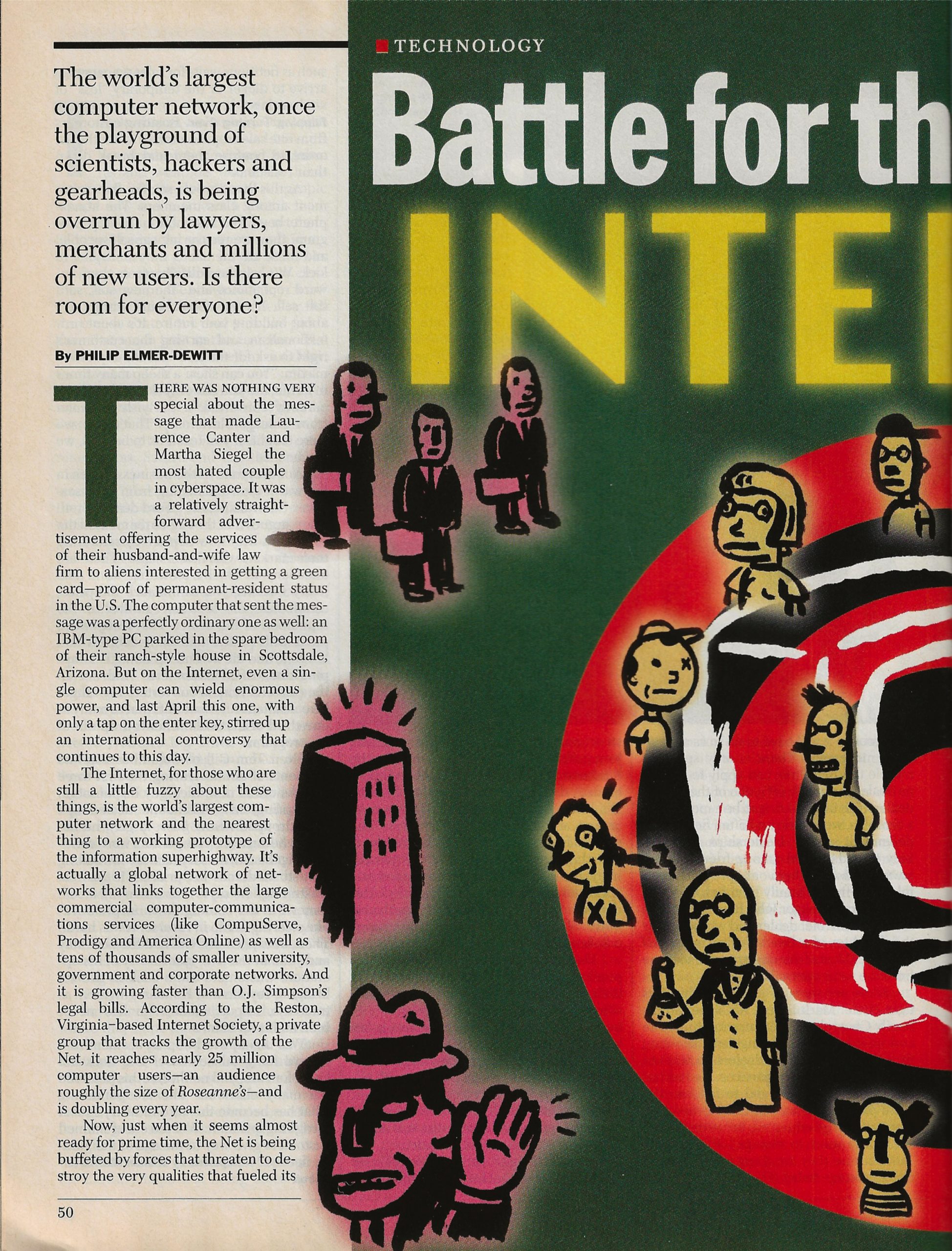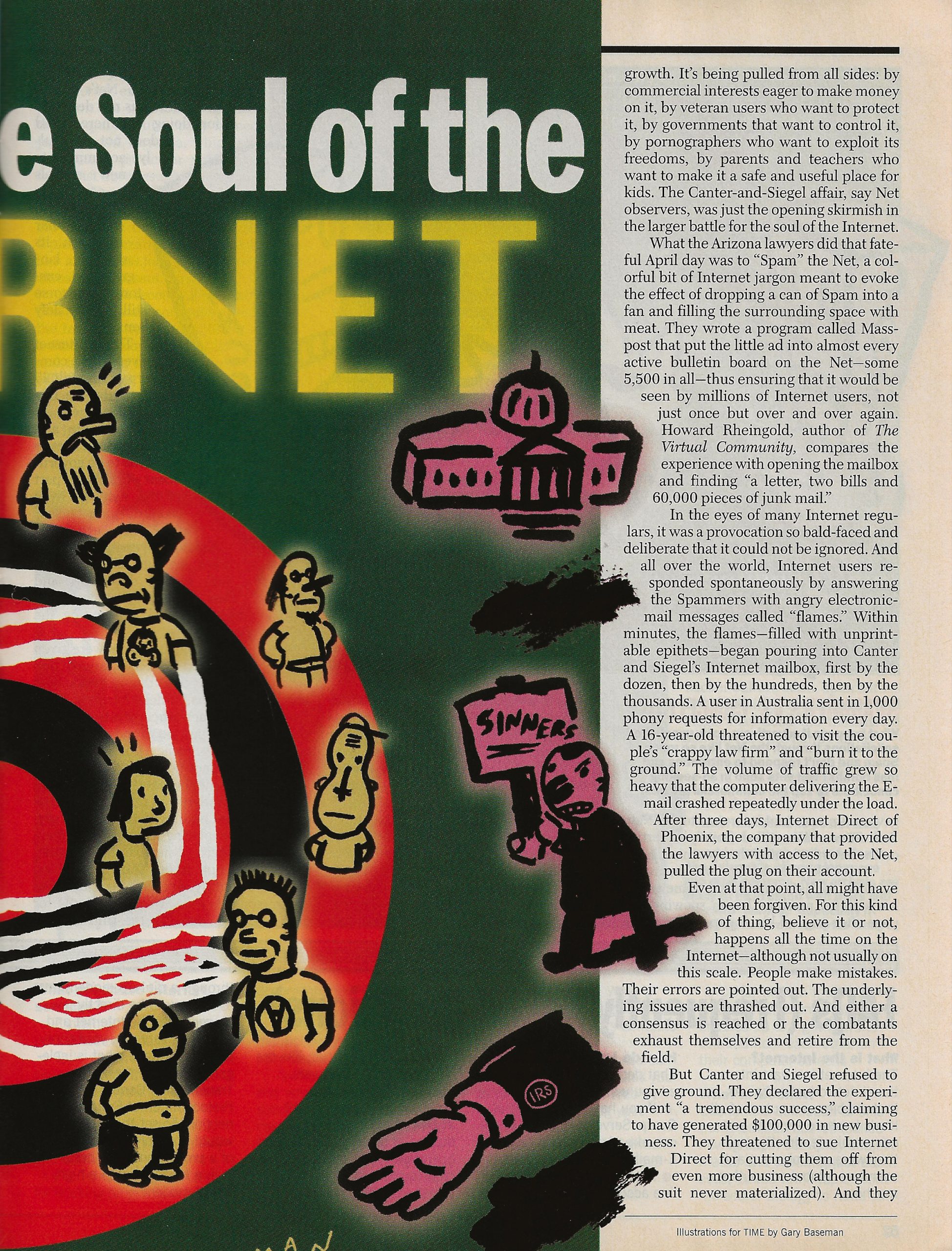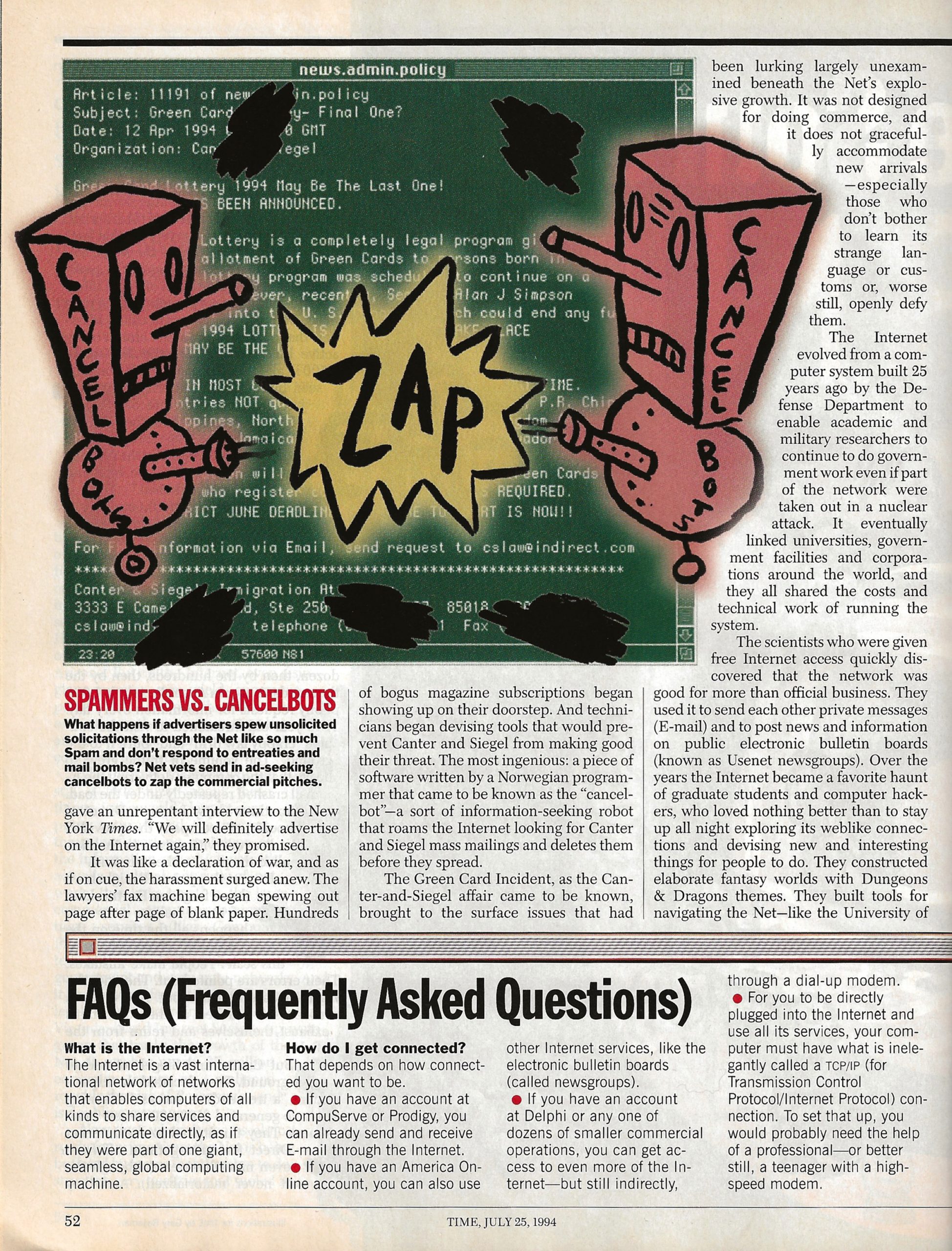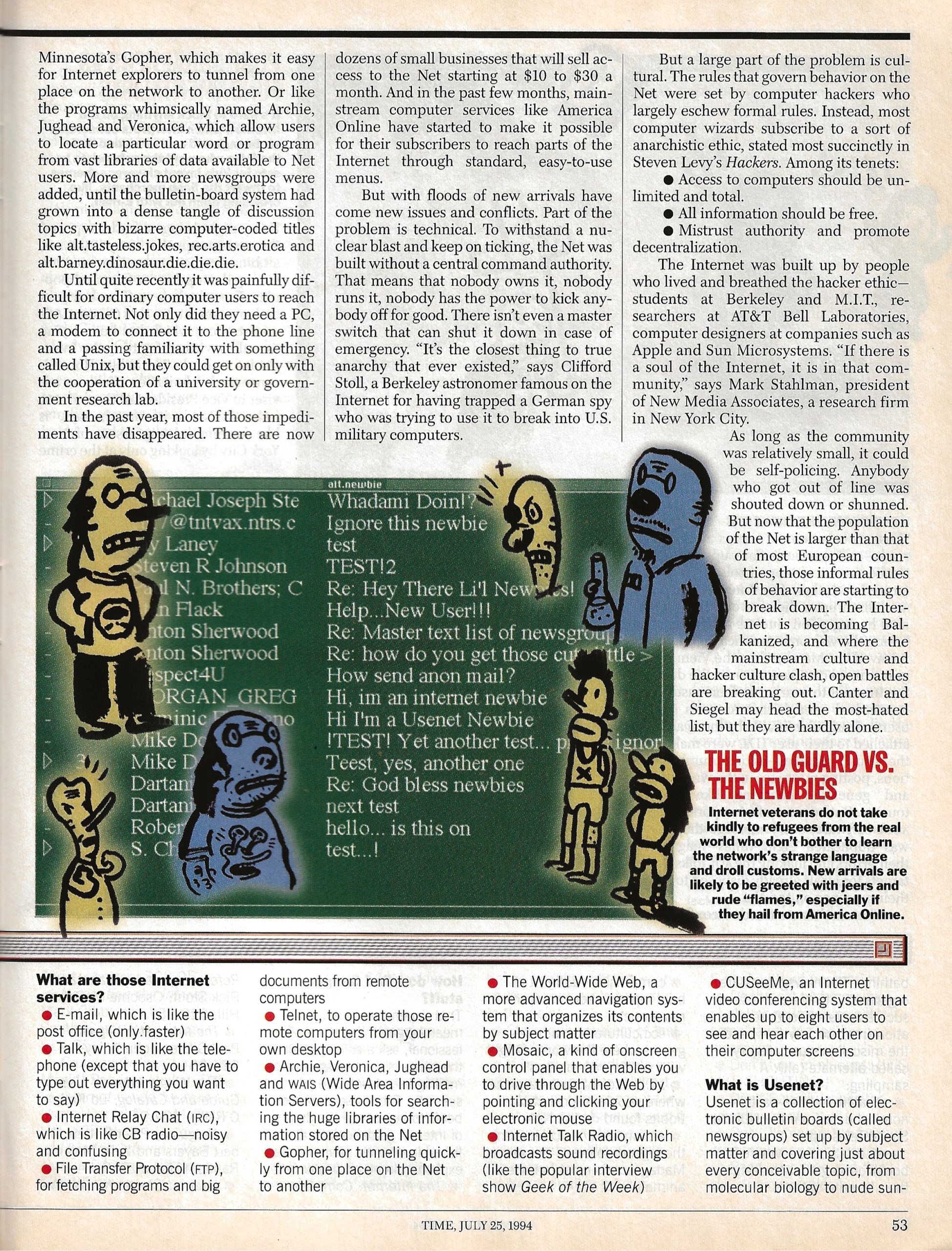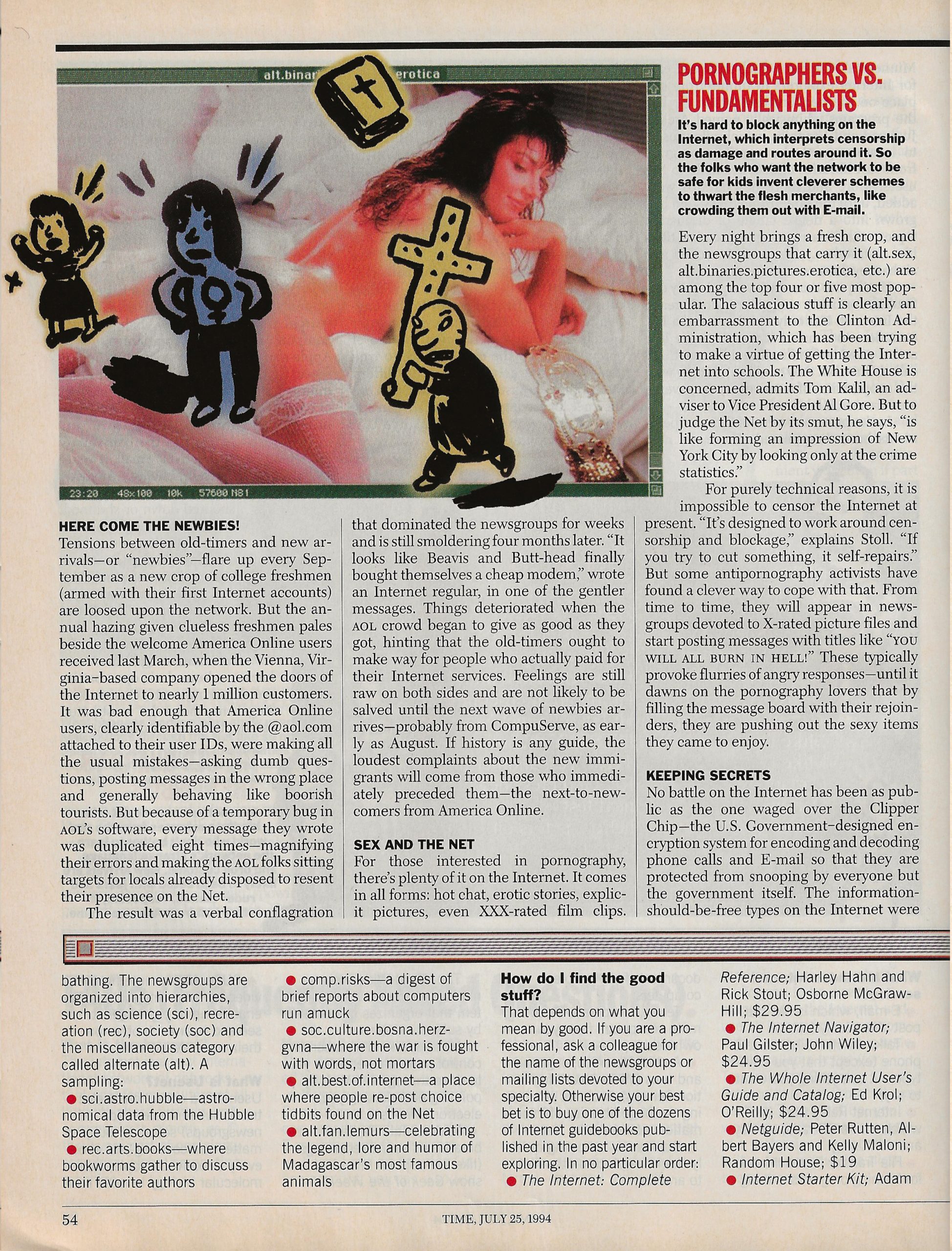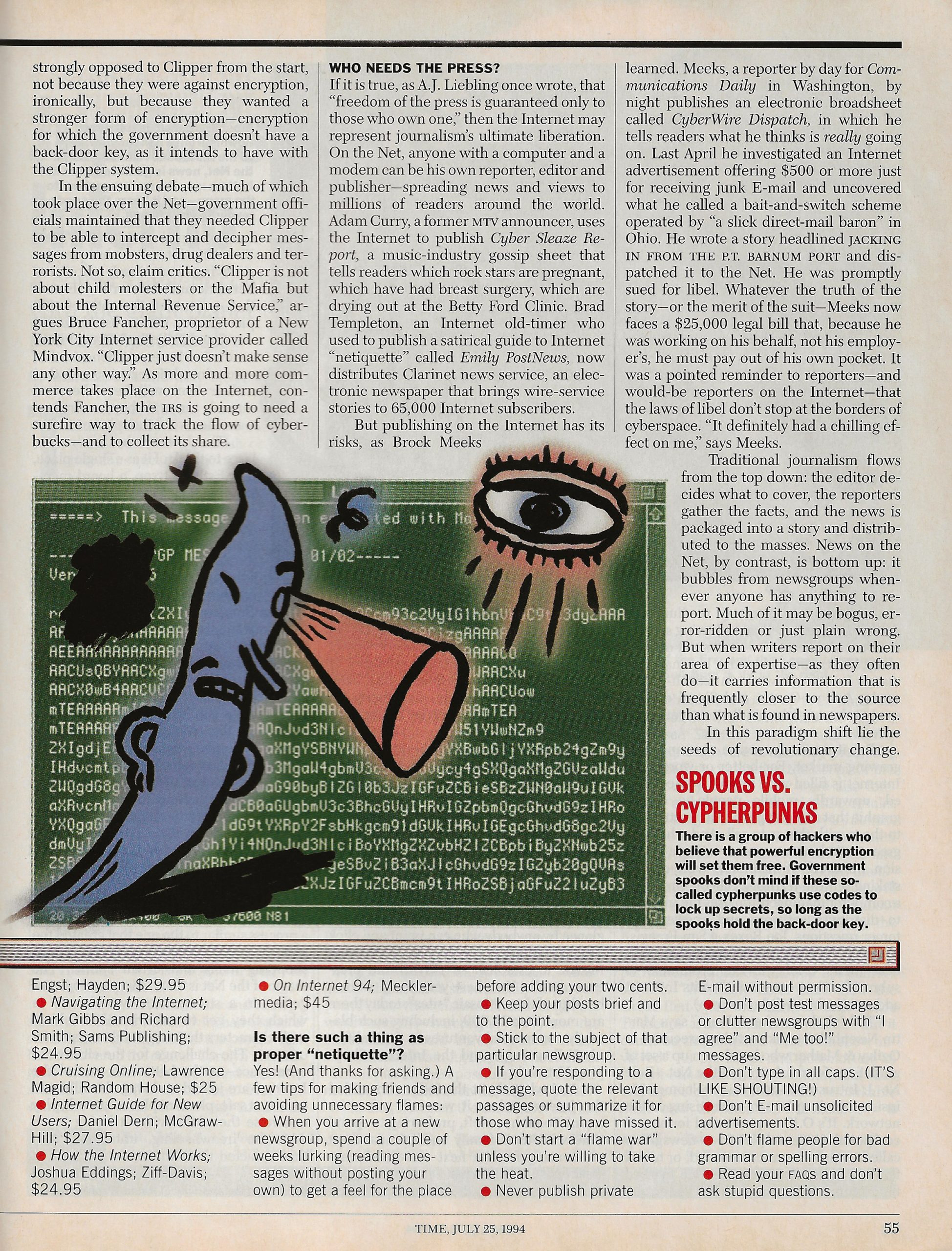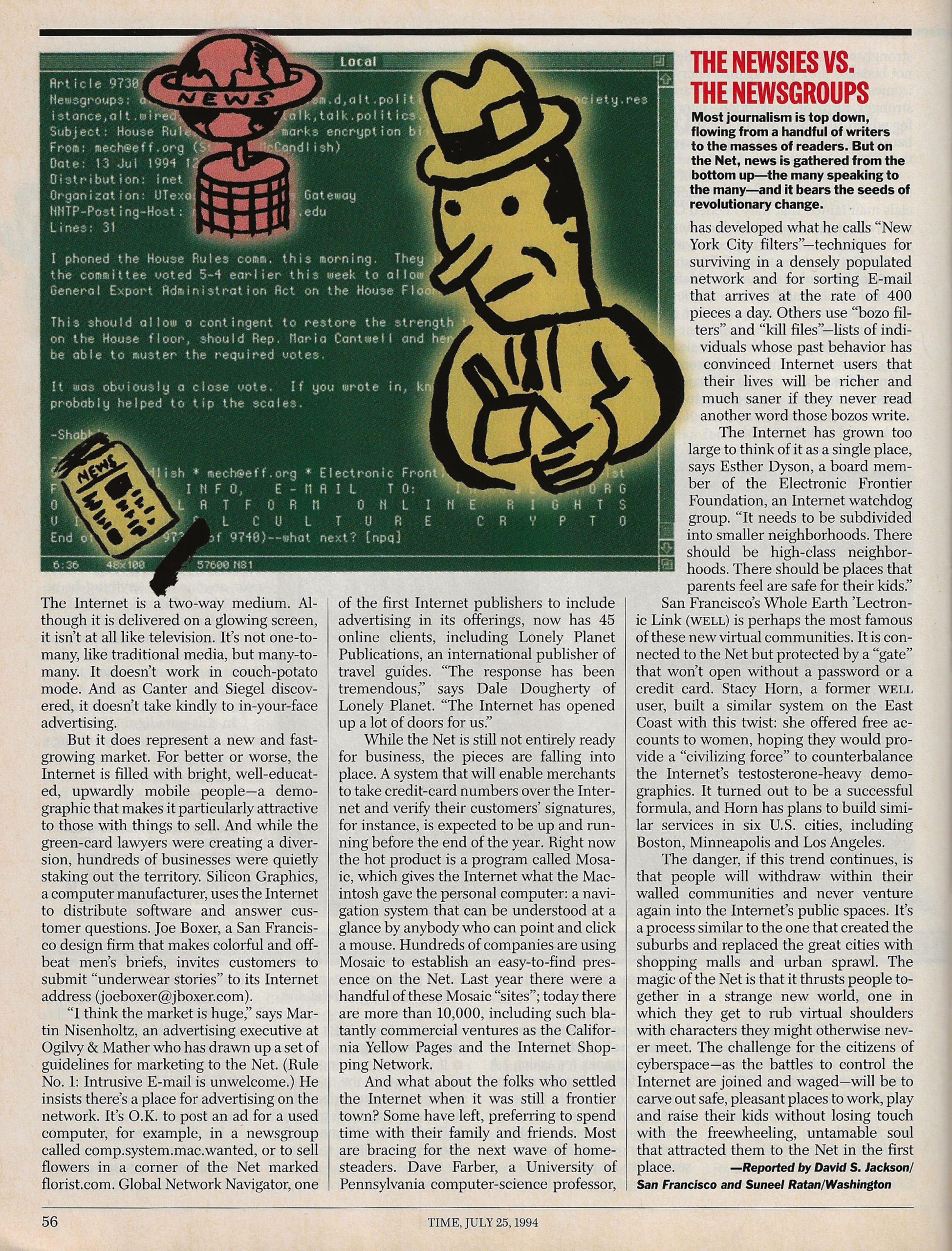This cover feature from the July 25, 1994 issue of Time Magazine examined the exploding popularity of the early internet and what it meant for the soul of this once remote frontier. As stated by author Philip Elmer-Dewitt, “The world’s largest computer network, once the playground of scientists, hackers and gearheads, is being overrun by lawyers, merchants and millions of new users. Is there room for everyone?”
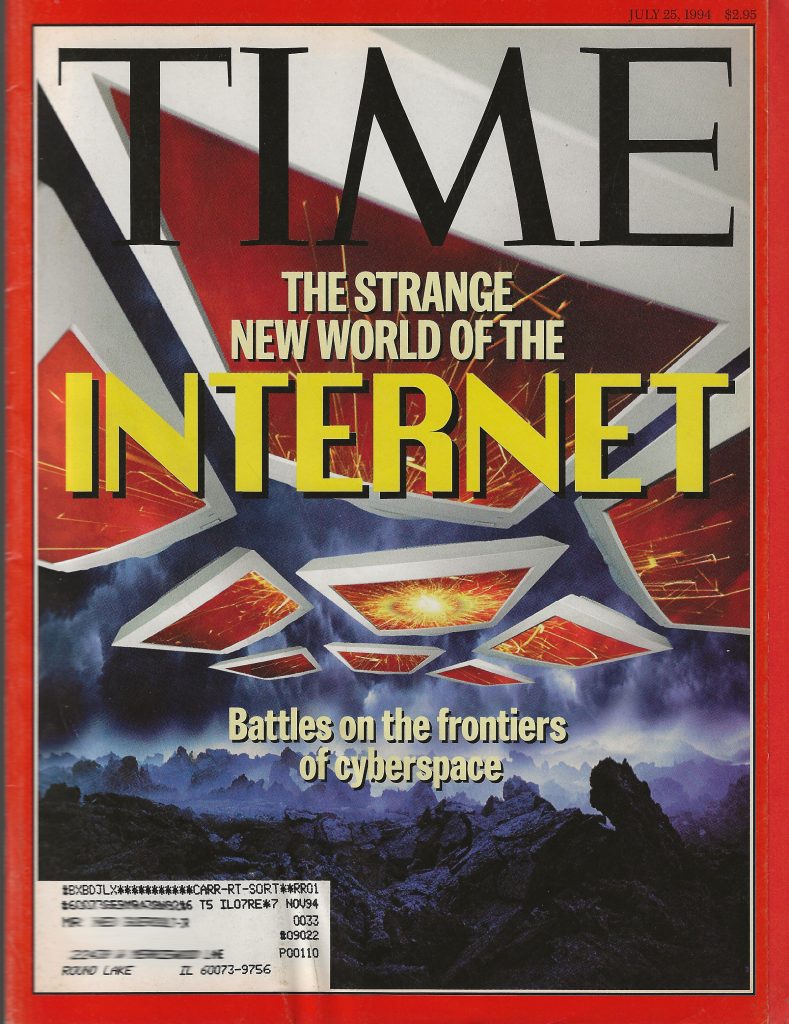
Early Xenophobia on the Net
The article begins by citing a recent case of “Spammers” vs. “Flamers” to suggest the Net was on the way to losing its soul. Husband-and-wife law firm Canter and Siegel decided to offer their services to help immigrants obtain their green cards. But when the pair wrote a program called Masspost to blast their advertisement across 5,500 bulletin boards, Internet users responded to the harassment by “flaming” the small firm. They sent in thousands of fake messages and blank faxes and signed the firm up for bogus magazine subscriptions. One user even threatened to burn the firm to the ground – quite literally “flaming” it.
This event in pop culture history termed “The Green Card Incident” shed a light on issues lurking beneath the surface of the Net. As the author of the Time article wrote, the Net “was not designed for doing commerce, and it does not gracefully accommodate new arrivals – especially those who don’t bother to learn its strange language or customs, or worse still, openly defy them.”
With mainstream services like America Online making it easier for ordinary people to log on, there came a flood of new users – and with them, new conflicts. And since the Net had been built by hackers to eschew authority, these conflicts were raging unchecked. In the words of astronomer Clifford Stoll, the Net was “the closest thing to anarchy that ever existed.”
Culture Clashes
As different populations moved onto the Net, culture clashes were inevitable. First, there were the “newbies” versus the old-timers and geeky early adopters. In a reversal from today, here it was the young crowd annoying the old-timers with questions about how this new-fangled technology worked.
Meanwhile, families and fundamentalists were stepping into a minefield of uncensored pornography. This certainly made things awkward for the Clinton administration’s efforts to get the internet into the hands of school children.
At this time, we can also see the beginning of the battle for online privacy that would continue through our time. The first major culprit was Clipper Chip, a chipset designed by the U.S. government to encrypt voice and data messages. The technology was meant to secure online communication from any kind of snooping – except of course, by the government itself. They claimed that access was necessary to decode threats from drug dealers, mobsters and molesters. Critics worried that entities like the IRS could use it to gather user data and track online commerce. Early hackers watched in dismay as corporations and controlling entities staked claim on their once anti-establishment landscape.
The Liberation of the Press
The new Internet was also creating a paradigm shift in journalism, for better or for worse. The Net opened up the freedom of the press to any average Joe with an opinion and a modem. His views, however factual, could be easily spread to millions of readers around the world. But on the plus side, the Internet would also hear from experts who were closer to the source than a reporter ever could be.
Emerging eCommerce
Though the Green Card Incident had proven that the Net was averse to intrusive advertising, there was still a massive new market for commerce taking shape. As long as companies followed the unwritten rules of netiquette, they would be welcome to set up shop in this new frontier. At the time of this article, the pieces for e-commerce were just falling into place. The ability to take credit card numbers and verify signatures was expected within the year. A new browser called Mosaic was making it easier for people to navigate the Net and for brands to establish their presence.
Staking Claims
As the Net was expected to continue welcoming newbies en masse, experienced users sought a way to cut through all the noise. Some created filters to blacklist more offensive “bozos” from their inboxes. Esther Dyson, of the watchdog group Electronic Frontier Foundation, believed that “the Internet has grown too large to think of it as a single place. It needs to be subdivided into smaller neighborhoods. There should be high-class neighborhoods. There should be places that parents feel are safe for their kids.”
Some sites were already emulating this ideal by locking their online communities behind password gates and paywalls. But in the author’s opinion, this would go against the very spirit of the Net, which was meant to draw people together in unprecedented ways. “The challenge for the citizens of cyberspace – as the battles to control the Internet are joined and waged – will be to carve out safe, pleasant places to work, play and raise their kids without losing touch with the freewheeling, untamable soul that attracted them to the Net in the first place.”
For more, read the original article in the scanned pages below:
Error embedding FlippingBook shortcode, please check the flipbook url. (https://online.flippingbook.com/view/1037358005/)
